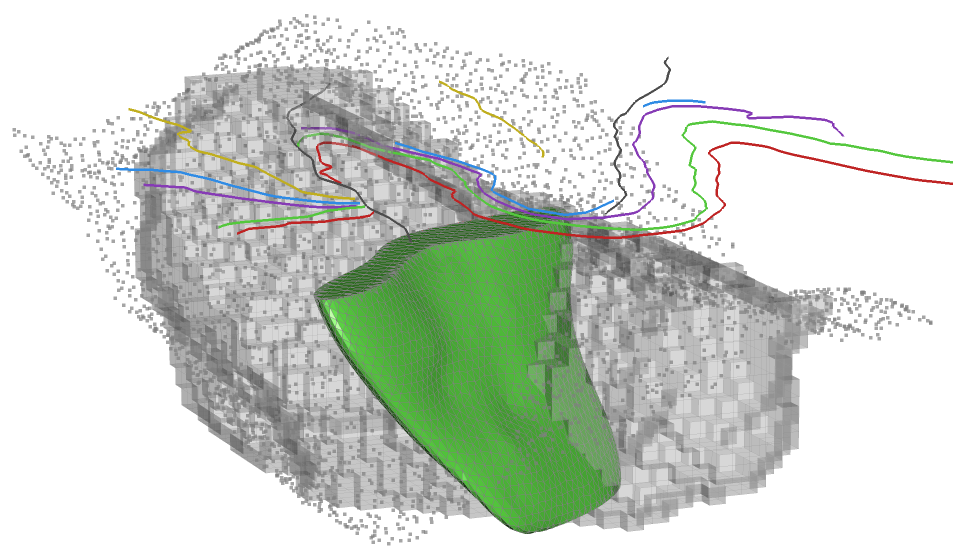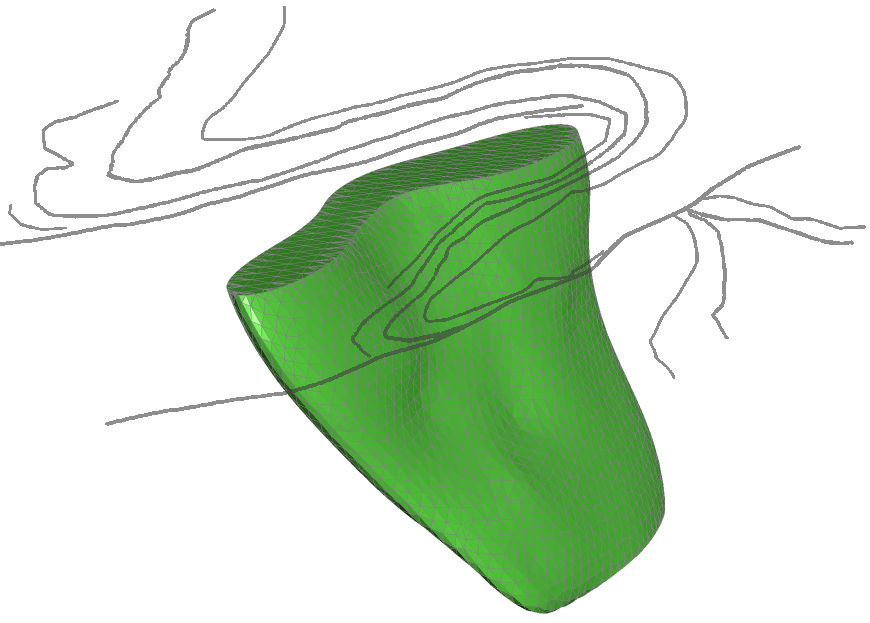OMF IO API¶
OMF Writer¶
Batch export multiple different object types from a geological modeling software package.

-
class
omf.fileio.OMFWriter(project, fname)[source]¶ OMFWriter serializes a OMF project to a file
proj = omf.project() ... omf.OMFWriter(proj, 'outfile.omf')
The output file starts with a 60 byte header:
- 4 byte magic number:
b'\x81\x82\x83\x84' - 32 byte version string:
'OMF-v0.9.0'(other bytes empty) - 16 byte project uid (in little-endian bytes)
- 8 byte unsigned long long (little-endian): JSON start location in file
Following the header is a binary data blob.
Following the binary is a UTF-8 encoded JSON dictionary containing all elements of the project keyed by UID string. Objects can reference each other by UID, and arrays and images contain pointers to their data in the binary blob.
- 4 byte magic number:
OMF Reader¶
Select which objects from the file are to be imported into a 3D visualization software.

-
class
omf.fileio.OMFReader(fopen)[source]¶ OMFReader deserializes an OMF file.
# Read all elements reader = omf.OMFReader('infile.omf') project = reader.get_project() # Read all PointSets: reader = omf.OMFReader('infile.omf') project = reader.get_project_overview() uids_to_import = [element.uid for element in project.elements if isinstance(element, omf.PointSetElement)] filtered_project = reader.get_project(uids_to_import)